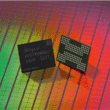Samsung Faces Significant Patent Infringement Ruling: Key Insights
- Court Verdict: A federal jury has ruled that Samsung Electronics infringed on multiple patents related to essential communication technologies.
- Financial Implications: Samsung is mandated to pay Collision Communications a substantial compensation of over $445 million.
- Technology Background: The patents in question focus on methods to enhance network communication quality, developed by a notable defense contractor.
In a pivotal legal decision, a federal jury in Marshall, Texas, delivered a verdict on October 10, establishing that Samsung Electronics violated patents concerning 4G, 5G, and Wi-Fi communication standards. The jury’s ruling emphasized the significance of innovation in the telecommunications sector and established a precedent for patent enforcement in technology.
The Jury’s Decision
The jury, comprising seven women and one man, concluded that various Samsung products, including laptops and Galaxy smartphones, infringed upon four specific patents owned by Collision Communications. This verdict arrives amidst increasing scrutiny regarding patent protections and corporate compliance within high-tech industries. Legal representatives for both Samsung and Collision Communications have yet to provide comments on the ruling, leaving the tech world eager for further insights.
Financial Ramifications
As a consequence of this ruling, Samsung is obliged to compensate Collision Communications to the tune of approximately $445,494,160—which amounts to around 3.18 billion yuan at current exchange rates. This hefty financial penalty underscores the ongoing challenges tech companies face in navigating intellectual property laws and highlights the importance of securing necessary licenses to use patented technologies.
The Patents Under Scrutiny
The patents contested in this case are centered around cutting-edge methods designed to minimize signal interference in network communications. These technologies were originally developed by BAE Systems, a well-respected defense contractor, specializing in systems that ensure clarity and reliability in congested communication networks.
Collision Communications acquired these patents from BAE Systems nearly 15 years ago and has been working to commercialize the underlying technologies within the cellular communications industry. The case illuminates the critical role that intellectual property plays in fostering innovation and the potential pitfalls companies may encounter when neglecting to respect existing patents.
Implications for the Technology Sector
This ruling may serve as a significant turning point for how major technology companies approach their patent compliance strategies. As the landscape of communication technology continues to evolve rapidly with advancements in 5G and beyond, safeguarding proprietary technologies via patents becomes increasingly crucial.
Further, the ruling accentuates the necessity for businesses to engage in thorough assessments of their product lines for potential patent infringements before launching new devices. Failure to do so could result in substantial financial liabilities and reputational damage.
Future Considerations
Moving forward, the technology industry must remain vigilant regarding patent laws and the potential repercussions of infringement. Companies are urged to implement robust compliance frameworks that can help avert similar litigations and maintain the integrity of advanced telecommunications networks.
The ruling serves not only as a cautionary tale for Samsung but as a universal warning to all firms operating in tech-driven markets. With the stakes rising in the race to innovate, the balance between competition and respect for intellectual property rights will define future industry standards.
In summary, the recent ruling against Samsung reflects growing concerns about patent infringements within the tech sector, reinforcing the importance of adhering to established communication standards. As companies like Collision Communications work to protect their innovations, the tech industry must adapt to ensure a more responsible approach to intellectual property management.
In conclusion, this case may prompt a broader discussion about the significance of patent rights and the responsibilities of corporations in honoring these rights. As technology continues to advance, so too must the strategies for protecting the creations that drive it forward.








